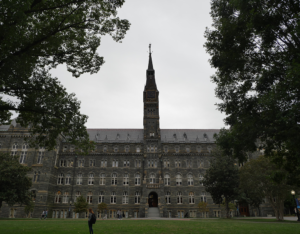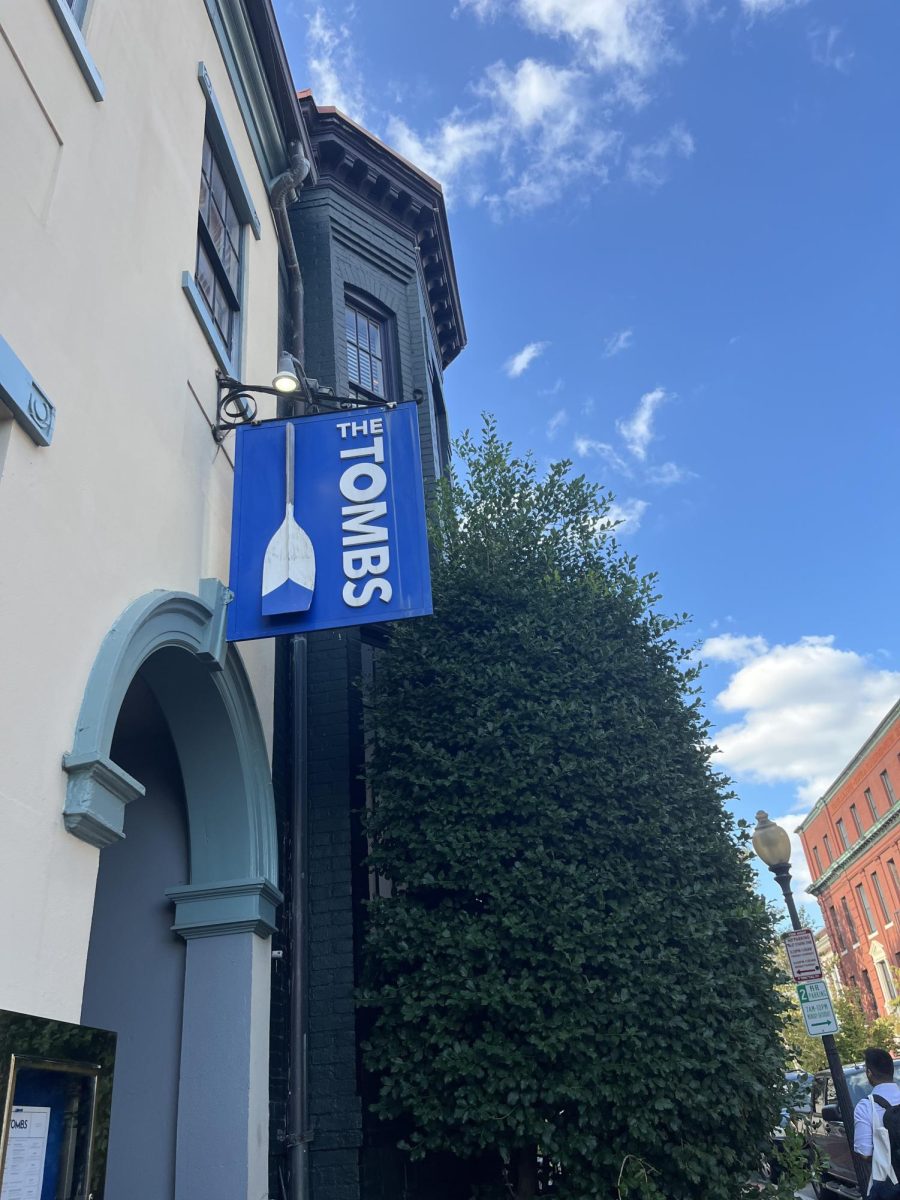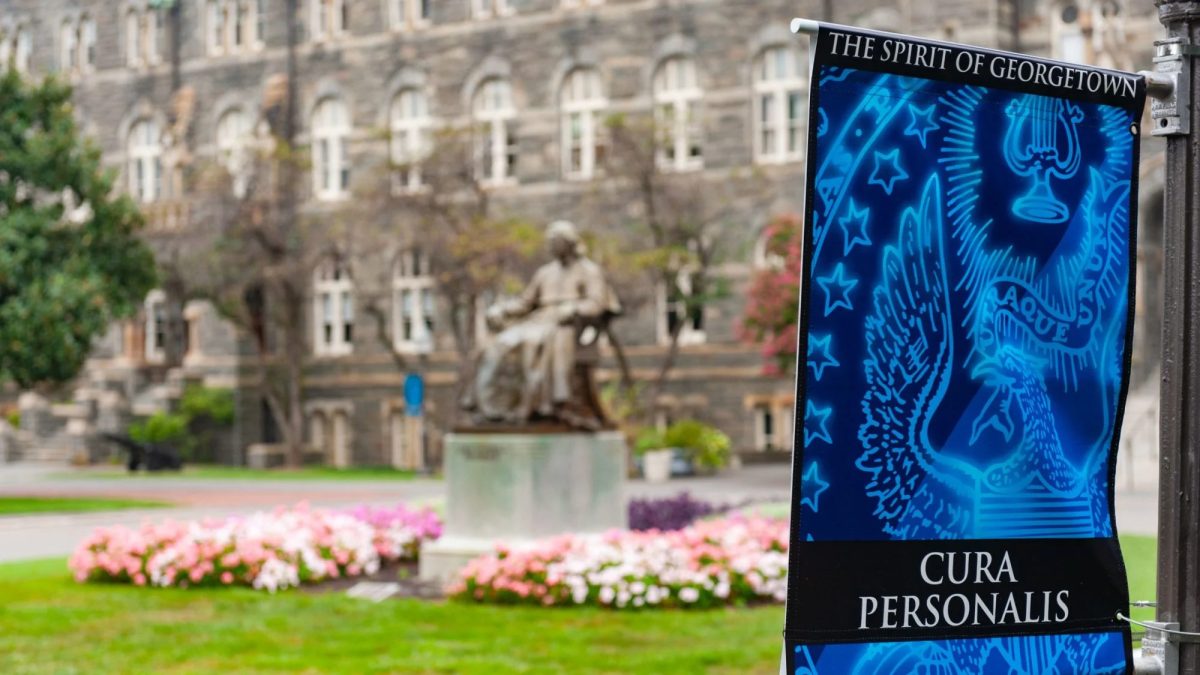The Georgetown University Student Association (GUSA) Senate passed seven pieces of legislation, including two bills to ensure ethical standards for student leadership, at its Feb. 23 meeting.
The senate passed a revised version of a bill Senator Tina Solki (SFS, MSB ’26) introduced in November 2024, under which GUSA will work with the Office of Student Conduct to develop a system for evaluating conduct violations for student organization leaders. The senate also passed additional bills calling on the university to make select language courses pass/fail, purchase production equipment for Gaston Hall, create a student health and wellness taskforce, amend executive budget requirements and ensure classrooms have working dry erase markers.

According to Solki and Senator Sam Lovell (CAS ’25), the Office of Student Conduct is planning to bar students with certain conduct violations from serving in top leadership positions on club boards.
Solki said though she did not have full details of the Office of Student Conduct’s plan, she expects them to implement a rule regulating student club leadership next fall.
“It’s the same standard that we have for students who want to study abroad —
they can’t represent Georgetown abroad if they’re suspended or under probation,” Solki said. “They’re planning on setting that standard for vice presidents and presidents of organizations.”
Solki said this bill will allow GUSA, and by extension the student body, to play an active role in a university policy which is already in development.
“We want to make sure that we as a student body are being the best we can be, but we want to make sure that we’re in the conversation in that process,” Solki said at the meeting.
A similar ethics bill passed by the senate will bar students with severe student conduct and honor code violations from serving in GUSA, and requires all future GUSA candidates to be audited for conduct by the Center for Student Engagement and Office of Student Conduct.
Students who are in a probationary period for longer than one semester, during which students are subject to greater consequences for additional conduct violations, or have an unresolved notation of honor code violation on their academic transcript would be barred from running for GUSA.
Lovell, the bill’s sponsor, said this level of specificity ensures only students with extreme academic or behavioral violations will be barred from running for GUSA.
“My understanding is that two-semester-plus sanctions or suspensions or expulsions, have to be really severe cases of harassment, bullying, et cetera,” Lovell said. “My understanding is the first time noise violation isn’t going to get you there.”
Lovell said this bill establishes an ethical standard that senators serving in GUSA must uphold.
“A student could be found responsible for some Title IX allegations, and we would have no way of knowing that and removing them from the body,” Lovell said at the meeting. “And I don’t think a person of that nature should be sitting here.”
After passing a bill allowing the senate to confer awards on designated students at its Jan. 26 meeting, the senate presented its first certificates of recognition to three students — Izzy Wagener (SFS ’26), Ulises Olea Tapia (SFS ’25) and Miranda Xiong (CAS ’25) — in honor of their contributions to Resident Assistant unionization and collective bargaining.
The senate also passed a bill that will mandate GUSA to work with university faculty to develop a pass/fail grading system for language courses taken after a student has completed their language requirement.
Solki, who introduced the bill, said students and faculty across multiple schools have supported the initiative to encourage a broader study of languages.
“The SFS at least seemed very enthusiastic about having students with a greater diversity of languages available to them,” Solki said. “Students in the School of Nursing and School of Health, in response to the survey, also said, ‘Hey, this is really important for us in thinking about health globally and being able to treat people more accessibly.’”
Modifying a bylaw amendment passed last meeting, the senate also passed a bill to allow new executive administrations to begin their terms with $10,000, instead of the $7,500 required by the previous bill. The senate also tabled a bill to add student artwork to campus spaces, and a bill to allow the executive to pursue local and federal advocacy efforts.
The senate passed another bill prompting the university to consider purchasing lighting and audio equipment for Gaston Hall.
Senator Robert Della Bernarda (CAS ’25), who introduced the bill, said the initiative will increase accessibility to Gaston Hall for student performance groups who rent the equipment, with costs likely being offset within a year due to the $1200 rental price for audio and visual equipment for student performances.
“Whenever you want to throw an event there, whether it’s a cappella, dance, really anything, you have to pay, in addition to just the labor costs, you have to pay for equipment, to rent that equipment as well,” Della Bernarda said at the meeting.
Following the conclusion of the annual Budget Summit on Saturday, after which the Financial Appropriations (FinApp) Committee sets the initial funding plan, Solki, chair of the FinApp Committee, said the Student Activities Fee budget passed by the senate would likely sustain or increase funds for the club boards funded through GUSA.
“I’m very proud to say that we’ve met the demand and demonstrated need of a lot of boards going forward,” Solki said at the meeting.



















